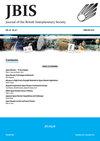A Re-appraisal of the Challenges Associated with Detecting Alien Signals and Technosigniatures
Q4 Engineering
Jbis-Journal of the British Interplanetary Society
Pub Date : 2023-05-15
DOI:10.59332/jbis-076-03-0087
引用次数: 0
Abstract
The Rare Earth Hypothesis contends that Earth’s unusual formation and distinct evolutionary pathways led to the unlikely emergence of Homo sapiens. This contention is developed further by combining the universal principles of the Newtonian n-body problem and Darwinism to argue that there is also an inherent randomness in the sequence, timing, duration and nature of evolutionary outcomes on alien worlds. This has two important implications. Firstly, where alien life might emerge, evolutionary pathways must differ considerably to those on Earth. Within this, intelligence is not the goal of evolution nor is it necessarily the best adaptation for a given niche; there is no systematic, inexorable progression towards higher intelligence and technology. Secondly, the chances of an advanced alien civilisation emerging from a separate, random evolutionary pathway with matching technology, and proximate signalling in deep time are vanishingly small. This re appraisal of the challenges associated with detecting alien signals has the advantage of using two key universal principles without relying explicitly on anthropocentric assumptions. Keywords: Fermi Paradox, Rare Earth Hypothesis, Alien Signals, SETI, Exoplanets重新评估与探测外星信号和技术特征相关的挑战
稀土假说认为,地球不寻常的形成和独特的进化途径导致了智人的出现。通过结合牛顿n体问题和达尔文主义的普遍原理,这一论点得到了进一步的发展,认为在外星世界的进化结果的顺序、时间、持续时间和性质中也存在固有的随机性。这有两个重要的含义。首先,外星生命可能出现的地方,其进化路径必须与地球上的有很大不同。在这种情况下,智力不是进化的目标,也不一定是对特定生态位的最佳适应;没有系统的、不可阻挡的向更高的智能和技术发展的进程。其次,一个先进的外星文明从一个独立的、随机的进化路径中出现的机会,与之匹配的技术,以及在深时间的近似信号,都是微乎其微的。这种重新评估与探测外星信号相关的挑战的优点是使用了两个关键的普遍原则,而不是明确依赖于人类中心主义假设。关键词:费米悖论,稀土假说,外星信号,SETI,系外行星
本文章由计算机程序翻译,如有差异,请以英文原文为准。
求助全文
约1分钟内获得全文
求助全文
来源期刊

Jbis-Journal of the British Interplanetary Society
Earth and Planetary Sciences-Space and Planetary Science
CiteScore
0.70
自引率
0.00%
发文量
0
期刊介绍:
The Journal of the British Interplanetary Society (JBIS) is a technical scientific journal, first published in 1934. JBIS is concerned with space science and space technology. The journal is edited and published monthly in the United Kingdom by the British Interplanetary Society.
Although the journal maintains high standards of rigorous peer review, the same with other journals in astronautics, it stands out as a journal willing to allow measured speculation on topics deemed to be at the frontiers of our knowledge in science. The boldness of journal in this respect, marks it out as containing often speculative but visionary papers on the subject of astronautics.
 求助内容:
求助内容: 应助结果提醒方式:
应助结果提醒方式:


